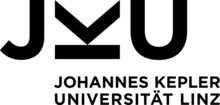03/28/2022
ESQ Faculty members Caslav Brukner and Philip Walther, former ESQ PostDoc Gonzalo Manzano, together with colleagues and collaborators, publish their latest findings in Physical Review Research
The study of thermodynamic fluctuations allows one to relate the free energy difference between two equilibrium states with the work done on a system through processes far from equilibrium. This finding plays a crucial role in the quantum regime, where the definition of work becomes nontrivial. Based on these relations, the physicists develop a simple interferometric method allowing a direct estimation of the work distribution and the average dissipative work during a driven thermodynamic process by superposing the forward and time-reversal evolutions of the process. They show that our scheme provides useful upper bounds on the average dissipative work even without full control over the thermodynamic process, and they propose methodological variations depending on the possible experimental limitations encountered. Finally, they exemplify its applicability by an experimental proposal for implementing our method on a quantum photonics system, on which the thermodynamic process is performed through polarization rotations induced by liquid crystals acting in a discrete temporal regime.
For more information see:
https://journals.aps.org/prresearch/abstract/10.1103/PhysRevResearch.4.013208
Navigation
Contact
ESQ Office
Austrian Academy of Sciences (ÖAW)
Atena Zalbeik-Dormayer
Boltzmanngasse 5
1090 Vienna
office(at)esq-quantum.at






